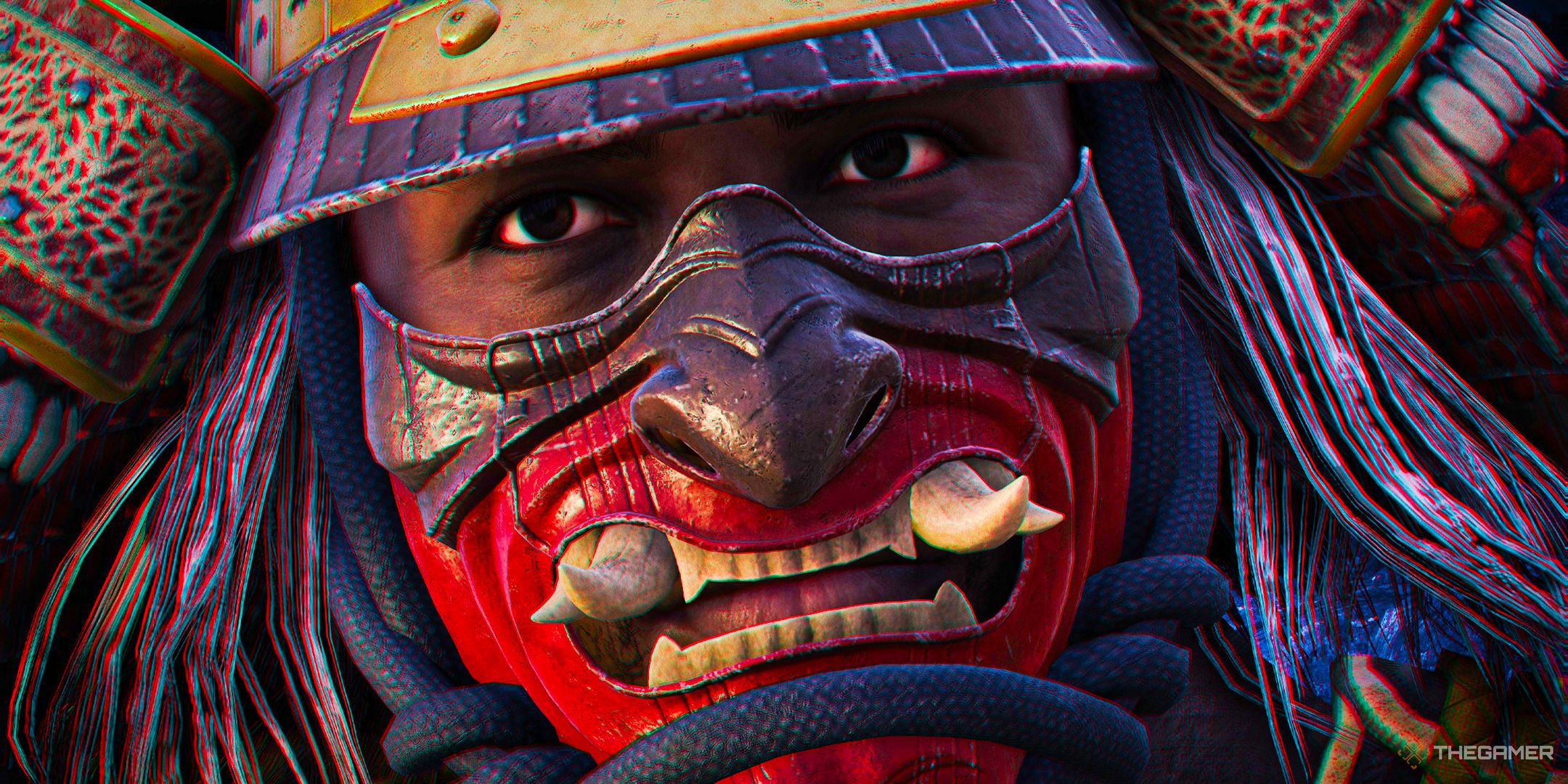
Assassin’s Creed Shadows: The Multi-Sell Feature Controversy
Introduction
Assassin’s Creed Shadows, Ubisoft’s latest triumph in the storied franchise, launched on March 20, 2025, to widespread acclaim, amassing over 3 million players in its first week and setting a new Steam concurrent player record for the series. Set in the vibrant world of feudal Japan, the game introduces dual protagonists—Naoe, a stealthy kunoichi, and Yasuke, a formidable African samurai—delivering a visually spectacular open-world experience. However, just one week after release, Ubisoft sparked outrage by removing a popular new feature: the multi-sell option, which allowed players to sell multiple inventory items simultaneously for in-game currency. This decision, reported by TheGamer and amplified by posts on X, has fueled debates about Ubisoft’s post-launch support and raised questions about the game’s future, especially amid clamor for a rumored co-op mode. This article explores the multi-sell feature’s brief tenure, the reasons behind its removal, fan reactions, and the broader implications for Assassin’s Creed Shadows.
The Rise of Assassin’s Creed Shadows
Assassin’s Creed Shadows represents a pinnacle for Ubisoft, a company rebounding from setbacks like Star Wars Outlaws’ underwhelming performance and studio restructuring. Set in 1579 during Japan’s Azuchi-Momoyama period, the game follows Naoe and Yasuke as they navigate warlord Oda Nobunaga’s unification efforts, weaving a tale of stealth, combat, and political intrigue within the Assassin-Templar conflict. Its open world, praised for its dynamic seasonal cycles—spring blossoms, summer rains, autumn foliage, and winter ice—enhances gameplay, with weather affecting stealth and traversal. The dual-protagonist system, inspired by Assassin’s Creed Syndicate, offers distinct playstyles: Naoe’s parkour and silent eliminations contrast with Yasuke’s katana-wielding, arquebus-firing brute force.
The game’s launch was a resounding success, achieving the second-highest day-one sales revenue in Assassin’s Creed history, trailing only Valhalla. It surpassed 1 million players in under 24 hours and peaked at 64,825 concurrent Steam players, outpacing Valhalla’s record. Reviews from IGN (8/10) and GamesRadar+ (four stars) laud its “stealth-action buffet” and “gorgeous” world, though some critique its “vague” narrative. Despite controversies over Yasuke’s inclusion as a Black samurai, which drew criticism from figures like Elon Musk, Ubisoft’s defense of their historical research and the game’s “Very Positive” Steam rating (based on thousands of reviews) have cemented its status as a series standout.
The Multi-Sell Feature: A Short-Lived Innovation
The multi-sell feature, introduced at Shadows’ launch, was a quality-of-life addition designed to streamline inventory management. In previous Assassin’s Creed titles like Odyssey and Valhalla, players had to sell items individually to merchants, a tedious process given the series’ loot-heavy gameplay. Shadows’ multi-sell option allowed players to select multiple items—such as excess weapons, armor, or resources like bamboo and iron ore—and sell them in bulk for sen (the in-game currency), saving time and enhancing the gameplay loop. This was particularly valuable in Shadows, where players frequently loot chests, enemy camps, and environmental nodes to fund upgrades for weapons, armor, and Naoe’s shinobi creed.
The feature was initially praised on platforms like Reddit and X, with players calling it a “game-changer” for reducing menu clutter and accelerating progression. Posts on the Assassin’s Creed subreddit highlighted its utility in the game’s economy, where sen is used to bribe officials, upgrade gear, or recruit spies via the spy network system. The multi-sell option complemented other quality-of-life improvements, such as the Observe mode for scouting targets and dynamic lighting that allowed players to extinguish lanterns for stealth, showcasing Ubisoft’s focus on player convenience.
However, just one week after launch, Ubisoft removed the multi-sell feature via a hotfix, as reported by TheGamer on April 16, 2025. The decision was attributed to “stability issues,” with the feature causing crashes and glitches, particularly on PC and Xbox Series S, where performance was less consistent than on PS5 and Series X. The hotfix also addressed other launch bugs, such as photo mode crashes and NPC pathfinding errors, but the multi-sell removal drew the most attention due to its immediate impact on gameplay.
Why Was Multi-Sell Removed?
Ubisoft’s official statement, shared via Ubisoft Connect and community forums, explained that the multi-sell feature was “temporarily disabled” to address “critical stability issues” that risked corrupting save files or crashing the game during inventory transactions. The issue was particularly pronounced on lower-end hardware, like the Xbox Series S, which is locked at 30 FPS compared to the 60 FPS on PS5 and Series X. On PC, where 27% of Shadows’ activations occurred, players reported freezes when selling large batches of items, especially with ray tracing enabled. Ubisoft promised to “re-evaluate” the feature for a future update but provided no timeline, leaving players uncertain about its return.
The removal likely stems from Shadows’ complex inventory system, which integrates with the game’s economy and spy network mechanics. Unlike Valhalla, where loot was simpler, Shadows features layered resources (e.g., regional materials like Iga silk or Omi clay) and a crafting system tied to seasonal availability, increasing backend demands. The multi-sell function, while user-friendly, may have overloaded the game’s database, especially during high-volume transactions in late-game scenarios where players amass hundreds of items. This mirrors issues in other open-world RPGs, like Cyberpunk 2077’s early inventory bugs, which required patches to stabilize.
Ubisoft’s decision reflects a broader priority to ensure Shadows’ long-term stability, given its record-breaking launch and the company’s precarious financial position. With a €1.16 billion Tencent investment to spin out Assassin’s Creed as a separate business and recent layoffs, Ubisoft cannot afford another high-profile misstep like Star Wars Outlaws. The hotfix, while controversial, aligns with the company’s post-launch focus on polishing core systems, as seen in their commitment to address fan feedback about missing features like New Game Plus.
Fan Reactions and Community Backlash
The removal of multi-sell has ignited a firestorm among Assassin’s Creed Shadows players, with reactions ranging from frustration to outright anger. On X, posts like @halfeatenmind’s (April 16, 2025) amplified TheGamer’s report, garnering thousands of views and comments decrying Ubisoft’s “knee-jerk” decision. Reddit threads on r/AssassinsCreed, with hundreds of upvotes, label the removal a “step backward,” especially since the feature was a direct response to years of fan complaints about inventory management. Players argue that selling items individually now feels “punishing,” particularly in a game with 30–80 hours of content, where resource gathering is constant.
Some fans, however, defend Ubisoft, noting that stability is critical for a game of Shadows’ scale. A Reddit user, ShinobiZero, suggested the crashes were “game-breaking” for some, and temporary removal was preferable to widespread save corruption. Others point to Ubisoft’s track record of post-launch support, citing Valhalla’s extensive updates, and express hope that multi-sell will return in a refined form. Still, the lack of a clear timeline has fueled skepticism, with players on X like @SynthPotato drawing parallels to the removal of social stealth mechanics, another fan-favorite feature scaled back from Assassin’s Creed Mirage.
The backlash is compounded by broader fan expectations, particularly around the rumored co-op mode codenamed LEAGUE, reported by Insider Gaming in October 2024. Players see the multi-sell removal as evidence of Ubisoft’s stretched resources, raising doubts about the company’s ability to deliver ambitious post-launch content like co-op or New Game Plus. The controversy has also reignited debates about Shadows’ development, which faced two delays from its original November 2024 date, suggesting underlying technical challenges.
Implications for Assassin’s Creed Shadows
The multi-sell controversy highlights the delicate balance Ubisoft must strike between innovation and stability in Assassin’s Creed Shadows. The feature’s removal, while addressing immediate technical issues, risks alienating players who valued its convenience, potentially impacting long-term engagement. With 40 million hours played in the first week and a robust post-launch roadmap—including the Claws of Awaji expansion, set for later in 2025 with a new island and weapon—the game’s success hinges on Ubisoft’s ability to restore trust through meaningful updates.
The incident also underscores Shadows’ complex systems, which push the Anvil engine to new heights with dynamic seasons, destructible environments, and a spy network that rivals Assassin’s Creed Brotherhood’s guild mechanics. While these features enhance immersion, they increase technical demands, as seen in the Series S’s 30 FPS lock and Steam Deck incompatibility at launch. The multi-sell issue may prompt Ubisoft to prioritize backend optimizations, delaying other requested features like co-op or a photo mode expansion.
Fan sentiment, amplified by platforms like Reddit and X, will play a critical role. The community’s push for LEAGUE mirrors their advocacy for multi-sell, suggesting Ubisoft may face mounting pressure to deliver both. The Claws of Awaji expansion, free for pre-orderers, offers a chance to regain goodwill, but only if it avoids similar missteps. Ubisoft’s openness to New Game Plus, contingent on player demand, indicates responsiveness, but the multi-sell saga shows that swift communication is key to managing expectations.
The Broader Context: Ubisoft’s Challenges and Opportunities
Assassin’s Creed Shadows arrives at a pivotal moment for Ubisoft. The company’s return to Steam, after years of prioritizing Ubisoft Connect and Epic Games Store, drove Shadows’ PC success, with 27% of activations on the platform. A €4.3 billion Tencent deal to create a subsidiary for Assassin’s Creed and other franchises signals long-term investment, but recent layoffs and the cancellation of projects like The Division Resurgence highlight financial strain. Shadows’ record-breaking launch—surpassing Valhalla’s Steam peak and achieving 3 million players in a week—offers a lifeline, but maintaining momentum requires robust post-launch support.
The multi-sell removal echoes broader industry trends, where live-service and open-world games struggle with launch stability. Titles like Cyberpunk 2077 and Starfield faced similar backlash for cutting features or launching with bugs, only to recover through updates. Ubisoft’s experience with Assassin’s Creed Unity, which overcame a rocky launch to become a fan favorite, suggests Shadows can rebound if multi-sell is restored and LEAGUE materializes. However, the company’s pivot away from early access and season passes for Shadows to create a “universal experience” may limit resources for ambitious additions, forcing tough prioritization.
The controversy also ties to Shadows’ cultural significance. Yasuke’s inclusion as a Black samurai, while historically grounded, sparked harassment and criticism, with Ubisoft defending their “creative liberties.” The multi-sell removal risks amplifying negative sentiment, especially among players already vocal about perceived missteps like the absence of social stealth. Ubisoft’s ability to navigate these challenges—technical, cultural, and community-driven—will shape Shadows’ legacy and the franchise’s future, with titles like Assassin’s Creed Hexe and Red on the horizon.
What’s Next for Shadows?
Ubisoft has promised to monitor feedback on the multi-sell feature, with a potential reintroduction in a future patch, possibly alongside the Claws of Awaji expansion or a broader update addressing New Game Plus and other requests. The expansion, featuring a new island, the Bō weapon, and a new faction, is a priority, but its success depends on avoiding technical issues that plagued the multi-sell launch. The rumored LEAGUE co-op mode remains a wildcard, with no updates since October 2024, but strong player demand could push Ubisoft to prioritize it, especially given Shadows’ cross-platform success on PS5, Xbox, and PC.
Fans are also advocating for smaller quality-of-life tweaks, such as expanding photo mode or restoring social stealth elements from Mirage. Ubisoft’s history of supporting Assassin’s Creed titles post-launch—Valhalla received over two years of updates—bodes well, but the company must act swiftly to address the multi-sell backlash. Transparent communication, as seen in their hotfix notes, will be crucial to rebuilding trust, particularly as Shadows competes with upcoming 2025 titles like Ghost of Yotei.
Conclusion
The removal of the multi-sell feature from Assassin’s Creed Shadows just one week after its March 20, 2025, launch has cast a shadow over an otherwise stellar debut. While Ubisoft’s decision prioritized stability, it has frustrated players who embraced the feature’s convenience, sparking debates about the company’s post-launch priorities. As Shadows continues to dazzle with its feudal Japan setting, dual protagonists, and dynamic world, the multi-sell controversy serves as a reminder of the challenges in balancing innovation with reliability. With the Claws of Awaji expansion and potential co-op mode on the horizon, Ubisoft has a chance to restore faith and cement Shadows as a defining chapter in the Assassin’s Creed saga. For now, fans wait—and hope—for a return to the seamless experience they briefly enjoyed.





